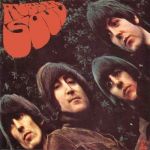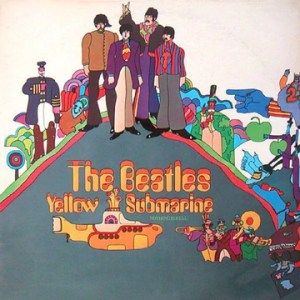
Hot Stamper Pressings of Let It Be Available Now
More of the Music of The Beatles
One of our good customers had this to say about some Hot Stampers he purchased recently. (Italics added.)
Hey Tom,
I was just now able to give this Let It Be Hot Stamper a thorough listen. I really sat back and put my listening ears on, as I have listened to this album a lot, both on vinyl and on CD.
It took about three songs into the LP before I was truly able to comprehend what I was hearing and how different it was compared to any other copy I have heard. I still am not sure exactly how to describe it in words, but it is amazing and unlike anything I have ever heard before.
Not only did I hear things I haven’t heard before, the things I have heard hundreds of times prior reached out and grabbed me like I couldn’t ever foresee. I heard a voice in the background of the opening to “Get Back” in clarity this time, where on other copies it was not much more than a mumble.
I guess the closest I can describe it is that this LP has a combination of punch, clarity and realism that I never knew existed on any recorded media before.
Some of the guitar riffs were beyond description. The voices are “live” and the bass is incredibly tight.
Now, being a collector of records for both listening pleasure and sheer collectability, I have paid a lot for some rare stuff. Because of that, I was very leery of paying this crazy price for this copy. Even after listening to it twice, I was still wanting to tell you that it sounded amazingly good, but I was going to send it back because it was just too much money.
But, I then asked myself, do you want to send it back? My immediate answer to myself was hell no, it sounds way too good and I need to have this for a demo disc to show my friends.
Anyway, I am impressed, Tom. I will be an avid watcher going forward and will be picking off some additional Hot Stampers as they show up on your site. Someone wrote you a while back and said he was better off getting a few Hot Stampers instead of a bunch of run-of-the-mill vinyl. I agree!
I am rocking at a different level now.
Bryan S.
Thanks Bryan, happy to be of service, as always.
I get what you mean about being leery of paying so much money for one record — you are not alone in feeling that way — but I see that you had no trouble recognizing the superior quality of the record we sent you, whose sound is where all its value rightfully lies.
Of course one could point out that the music is pretty good too.
Who can put a price on hearing some of the best music The Beatles ever recorded with sound you could have never imagined?
With our records you are definitely rocking at a different level. One of customers put it this way:
“Honestly, these LPs make my system sound like I just dropped another $100,000 into it.”
For those who don’t have 100k, but might be tempted to put 20 grand into an amp or turntable, our customer John had a good answer, one that we’ve distilled down to three words: don’t do it.
We added:
(more…)




 I used to think these Heifetz records were a bit crude, but now I realize I just couldn’t play them right back in those days.
I used to think these Heifetz records were a bit crude, but now I realize I just couldn’t play them right back in those days. Hot Stamper Pressings of Help Available Now
Hot Stamper Pressings of Help Available Now





